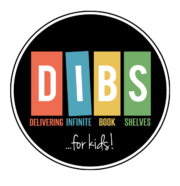Instilling reading habits and skills in early childhood
Advertising has always intrigued my son. I think the loud colors, big letters, and catchy jingles worked their magic at first, but he became aware of the power of words much earlier than I expected.
If he could say it, he could ask for it, refuse it, and (frighteningly) repeat it!
Now a preschooler, he comes home daily with new phonetic cognizance. Phonics is really the key right now, helping him to recognize words as he begins to try reading on his own. “I know it starts with a C, or a K,” he’ll say, and start the letter hunt.
If he wants to write a note for Grandpa, he’ll sound out and guess each letter, while I course-correct like backwards dictation.
Focusing on phonics is perfect for him right now, but as he gets older the Association for Supervision and Curriculum Development has found it just isn’t as effective.
Older students tend to be much less interested in the sound-to-letter link than their elementary-aged counterparts, and we all know how hard it is to teach a middle or high school student something they don’t relate to.
Knowing what is most important to instilling good reading habits and skills before your child enters school can be tricky, but there are some basic things you can keep top of mind as a parent or guardian.
Something I’ve learned is that my boy gets a kick out of searching for books by the same author at the library. It helps him recognize the cover art and he has some idea what to expect whenever he grabs one of those stories.
Across all ages, we have to remind students that words are powerful, and that stories reflect life:
“Instruction to facilitate word knowledge begins with high-interest, easy reading and pulls high-utility words directly from the pages….” according to the ASCD.
Find words that spark a child’s intrigue, make their eyes light up, or equip them to meet a goal. When a book takes on context in the real world, reading suddenly becomes a part of the environment.
To really exchange ideas, “…describe the mental activities involved in making sense of text and encourage students to share the specific processes that they use to build their personal understandings of what they read.”
You can do this by helping your preschooler spot fun clues in the illustrations, or recall a time they went through something that the character does. Helping your child think through these processes can help them be more aware of how they engage with or understand words and books once they start school.
Advertisers harness the power of words to persuade us, and our kids can use the same power to transform the world around them.
Here are some ways you can have fun and help your preschooler build their love for reading:
- Look at family photo albums. Discuss special holidays or important events that are part of your family’s cultural traditions.
- Ask your child to say as many words as they can that rhyme with a certain word. Start them off with a simple word with many rhyming options, such as ball or hill.
- Ask them to predict what will happen next in a story or to tell what they liked/didn’t like.
Hi! My name is Bethany Proksel. I landed in business after an upbringing in creative writing, history, and tutoring. I’m a lucky wife, mother of two, aspiring runner and amateur cyclist. I love capturing the sweet and simple observations of my 5 and 12-year-old while we explore the big wide world.



 Previous Post
Previous Post Next Post
Next Post
